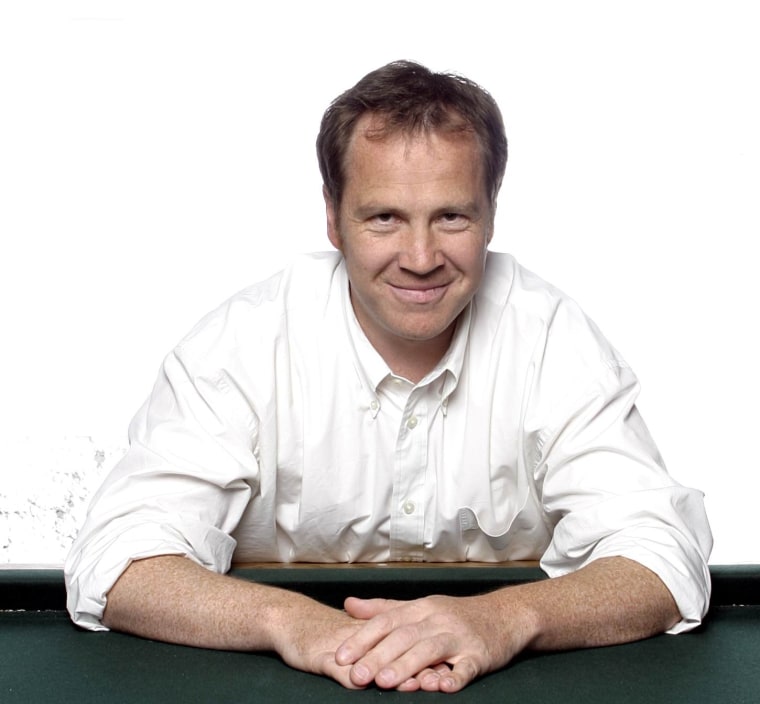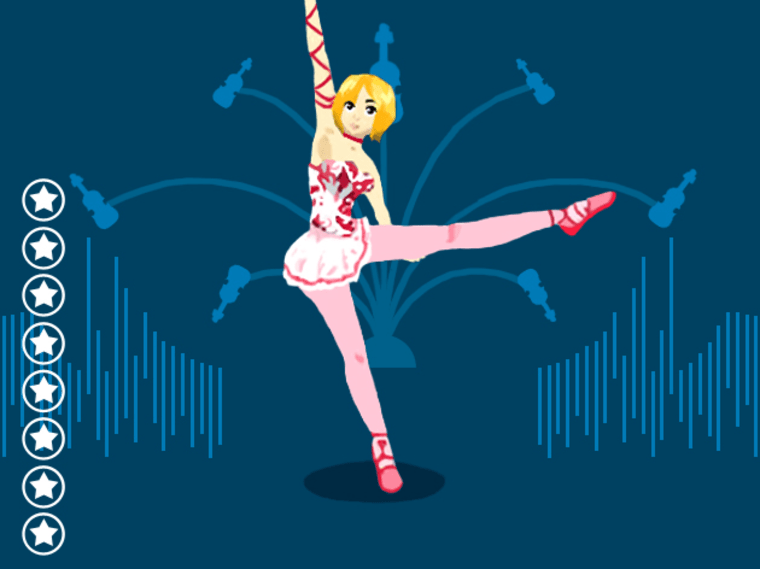After 17 years of marketing shooters, Ubisoft’s Laurent Detoc says he’s psyched to make games for girls who want to raise a virtual hamster.
It’s a seismic shift for the company that makes the “Splinter Cell” shooter series. And it took a little getting used to, says Detoc, who runs the French company’s North American business.
“We understand the 25-year-old guy who wants to shoot stuff,” he says. “It’s a lot more difficult to understand the 12-year-old girl who wants to pet a cat.”
Clearly, they’re doing something right. Titles from Ubisoft’s casual “Games for Everyone” business accounted for 25 percent of the company’s revenues last year. Gamers bought 8 million games from the Ubisoft's “Petz” brand, which has gamers adopt and raise furry virtual critters. And its “Imagine” brand, which is aimed at young girls, has sold 4 million units since its debut just nine months ago.
This success has led to some flush times at Ubisoft. The company reported that its 2008 fiscal year earnings were up an impressive 43 percent, spurred in large part by its wins in casual games and with "Assassin's Creed," one of last year's best-selling games.
But Ubisoft’s not the only company having a great year. As I’ve written in previous columns, the whole industry is going like gangbusters — and Detoc predicts these good fortunes will continue for the foreseeable future.
“Do you know why we’re doing well? Because the (console) cycle is in a good moment right now — and probably will be for the next two or three years — and because we’ve reinvented ourselves,” he says. “Nintendo is a big driving force for that.”
At this year’s E3, video-game conference, Ubisoft rolled out a slew of upcoming releases, including a new “Petz” title (featuring monkeys and animal cross-breeding) for the Nintendo DS, a Shaun White snowboarding game that takes advantage of the Wii Balance Board and the new “girl power” brand, “Ener-G.”
But there was plenty to placate hardcore gamers, too. The company showed off sneak peeks of its new “Prince of Persia” title and the latest “Far Cry 2,” as well as a teaser trailer for “I Am Alive,” an adventure title set in post-apocalyptic Chicago.
During a sit-down at E3, I asked Detoc about creating new intellectual properties such as “Assassin’s Creed” and “I Am Alive,” whether he thinks the industry can continue its blistering growth rate and whether there’s any truth to the rumors that Ubisoft is for sale. The following features excerpts from that conversation.

It’s not a cheap way to do business. It’s a commitment to invest your resources and money as needed. When you buy something, you spend the money up front and you have a guarantee that it will be doing some numbers, because there’s an awareness that you’re going to benefit from. The problem is that when you do that, you’re buying somebody else’s property. You’re borrowing it. Whereas, when you create it, it’s yours. So if it’s a success, it’s yours. We prefer to do that, as a company, because we think there’s more value in the long term.
Ubisoft is known throughout the industry for having pretty big development teams. Is that sustainable? In an industry where not every game is going to be a big seller — and in order to recoup your costs — you need to sell a lot of games.
So far, so good. It’s working. Part of the reason why it’s working is … we don’t necessarily have a large team during the entire length of the project. More important is our strategy is of development in more affordable places. So when I talk about Romania or China (where the company has studios), the cost of development over there is not as costly as it is in, say, England.
But I would say, as a whole, our costs for development, as a company, is less than the other ones because we’ve been making conscious efforts to go into places where we could get subsidies, like we have in Canada, or we try to keep our costs low.
Are you personally alarmed by the ballooning costs of making games? I heard that Rockstar spent $100 million making “Grand Theft Auto IV,” and the average cost is something like $15 million.
If you sell enough units, you can spend $100 million making a game. When we’re going to make — if that ever comes out — a sequel to “Assassin’s Creed,” our expectations in terms of units is going to be very high because we know we have something very compelling already. The brand is extremely strong … so we know we’re going to sell a lot of units. The investment in the game is proportional to that expectation.
You launched that game in probably one of the most hit-filled game seasons that I can remember. Were there any white-knuckle moments when you thought about the fact that you were going to be launching “Assassin’s Creed” at the same time as all the other great titles that came out around the holiday season?
I’ve been doing this for 17 years and it’s white knuckles every Christmas. And January. And March. We always worry, but that’s the fun of all this — it’s a very intense competing environment.
Does the holiday season really matter anymore? Or is there enough of an appetite, in your opinion, to sustain releases throughout the year?
Yes, and we’ve seen this lately more than ever. We just shipped “My Weight Loss Coach.” When is the best time to ship “My Weight Loss Coach”? In November? Not really. Typically, you’re going to be in that mode in January or April because you’re going to feel guilty about Christmas, or you’re going to start wanting to lose weight before summer. So, there’s a product that fits very well in the first half of the year as opposed to the back half of the year.
Do you think that the game industry is recession-proof?
Right now it is. It’s soaring. It was in 2000 when we had the same phenomenon. We arrived in the (console) cycle and the bottom fell out of the dot-com industry. We didn’t see a blip. And if we did, it was minor in comparison to that momentum that was created by the cycle. What I’m saying is, right now, we have the cycle and the creativity of the industry to invent itself a new direction for grabbing more business.
There’s a lot of consolidation going on in the industry right now. There’ve been a few happy marriages, but there have been some less-pleasant dealings, and I’m referring specifically to EA’s purchase of 20 percent of Ubisoft’s shares. I’d read that an outright acquisition was something that (Ubisoft) was considering.
First of all, they don’t have 20 percent, they have 15. They bought 20 percent initially, but dilution, over time, brings them to about 15 or maybe even less.
I would not speak about what we’re considering because I’m not the one making that decision. That was a long time ago — I don’t know what the future holds. We like to be Ubisoft, that much I can tell you.
I also wanted to follow up on a rumor that Ubisoft might acquire Take-Two.
And Take-Two may acquire Ubisoft. I don’t know. We are in the same business, so everybody talks to everybody. Last night, a lot of executives were having a cocktail party, hosted by Microsoft, and in that evening, we talked to Electronic Arts, Take-Two, Microsoft, Tecmo, THQ, Disney … until something happens, it’s all speculation. Other people want to buy us, by the way.
Such as?
There’s certainly a trend right now for the more mature entertainment companies to want to get into the games space because they see how much potential there is in there. So, Warner Bros. certainly has enough money to buy Ubisoft. Now, whether Ubisoft would want to sell to Warner is a different question.
You’ve got the core games, which you’re obviously still investing in heavily, and then you’ve got games for mainstream. I’d argue that Ubisoft is one of the only third-party publishers that has managed to do both successfully. Was it a tough sell, internally, to move into these spaces?
Not everybody’s going to want to work on the fashion-designer game because that’s not what they want to do, and you have to respect that.
To me there’s no such thing as bad business. What’s more important is that we have to make content that’s relevant and that’s good … we make content for people who didn’t exist before, so they came to us. And that’s how we grow also as a company.
We’re going to make sure that we have content for that customer, that underserved customer that is somewhat new to the business, and if they’re not new, they’re consuming more than they used to because there’s content for them.
